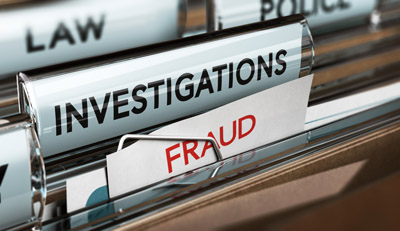A federal campaign to combat COVID-19 fraud resulted in 718 enforcement actions, including criminal charges against 371 defendants, for crimes related to more than $836 million in alleged COVID-19 fraud.
The U.S. Department of Justice announced the results of the campaign Aug. 23.
"The Justice Department has now seized over $1.4 billion in COVID-19 relief funds that criminals had stolen and charged over 3,000 defendants with crimes in federal districts across the country," Attorney General Merrick Garland said in a statement.
Deputy Attorney General Lisa Monaco made the announcement at a roundtable meeting of senior Justice Department officials, law enforcement partners and Office of Inspector General executives. Monaco also announced the launch of two additional COVID-19 Fraud Enforcement Strike Forces: one at the U.S. Attorney's Office for the District of Colorado, and one at the U.S. Attorney’s Office for the District of New Jersey.
Those two strike forces are in addition to the three strike forces launched in September 2022 in the Eastern and Central Districts of California, the Southern District of Florida, and the District of Maryland.
"The two new Strike Forces launched today will increase our reach as we continue to pursue fraudsters and recover taxpayer funds, no matter how long it takes," Monaco said in a statement.
The 718 law enforcement actions include criminal charges, civil charges, forfeitures, guilty pleas and sentencings, with a combined total actual loss of more than $836 million, according to the Justice Department.
Criminal charges were filed against 371 defendants, and 119 defendants have pleaded guilty or were convicted at trial during the sweep. More than $57 million in court-ordered restitution was imposed. Prosecutors worked with law enforcement to secure forfeiture of more than $231.4 million.
Michael Horowitz, chairman of the Pandemic Response Accountability Committee, said early mistakes cost taxpayers.
"Agency decisions in the early months of the pandemic that prioritized speed over accuracy in delivery of relief funds led to brazen fraud and outright theft of millions of dollars," he said in a statement.
Horowitz testified in February that federal agencies failed to use some of the tools at their disposal to prevent fraud, including the Do Not Pay list. The U.S. Department of the Treasury had set up the list of suspicious payees who should trigger additional screening.
He said advance screening with the U.S. Department of the Treasury Do Not Pay list could have saved taxpayer money.












